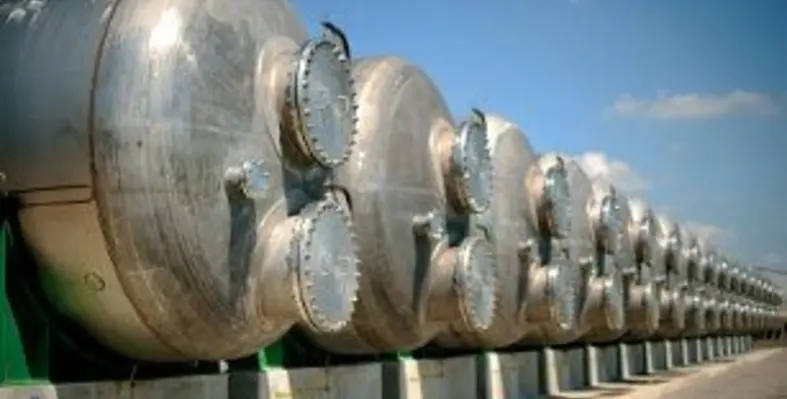Qatar has embarked on plans to build a 10 billion Qatari riyal (US$2.75 billion) mega-reservoir capable of holding seven days worth of fresh water to avert a potential crisis should its giant desalination plants that supply 99 per cent of the Gulf states water fail.
Gas-rich Qatar produces most of its electricity and desalinated water from privately managed power and seawater desalination projects run under the independent water and power project, or IWPP, model.
Any disruption to these plants could be catastrophic, analysts say, cutting off the Gulf Arab state's only source of freshwater and potentially plunging it into an emergency.
"Power plants are strategic targets in war-like situations," said Samuel Ciszuk, senior Middle East and North Africa analyst at consultancy IHS Energy in London.
"There are other problems too. What happens if there was a major oil spill off the coast of Abu Dhabi? That could be damaging for water intake at desalination plants," Ciszuk added.
Qatar, has minimal groundwater reserves and an average rainfall of about 75 millimeters a year, is more than 99 per cent reliant on desalination to meet domestic demand, according to the country's General Secretariat of Development Planning.
Production of desalinated water, which requires large amounts of power, is expected to increase 24 per cent from current levels to reach 325 million imperial gallons a day by the end of 2012, data from the General Electricity and Water Corp., Kahramaa show.
Qatar's storage project, with a planned capacity of 1.9 billion imperial gallons, is still in the design stage and may include a network of reservoirs connected by a 183-kilometer, 2.5-meter wide pipeline linking the Ras Laffan desalination facility in the country's north and the Ras Abu Fontas plant in the south, according to people familiar with the project.
Kahramaa, the project client, is expected to tender the main construction contract early next year.
"This is a strategic project to secure potable water for all of Qatar with the construction of huge reservoirs via an associated pipeline," Kahramaa director of technical affairs Saad Al Mohannadi told a recent conference in Doha. "During a crisis at least we [will] have qufficient water reserves."
According to U.K. law firm Pinsent Masons Water's Yearbook 2009-2010, Qatar has stored water reserves of about three days worth of supply based on the average national consumption rate.









